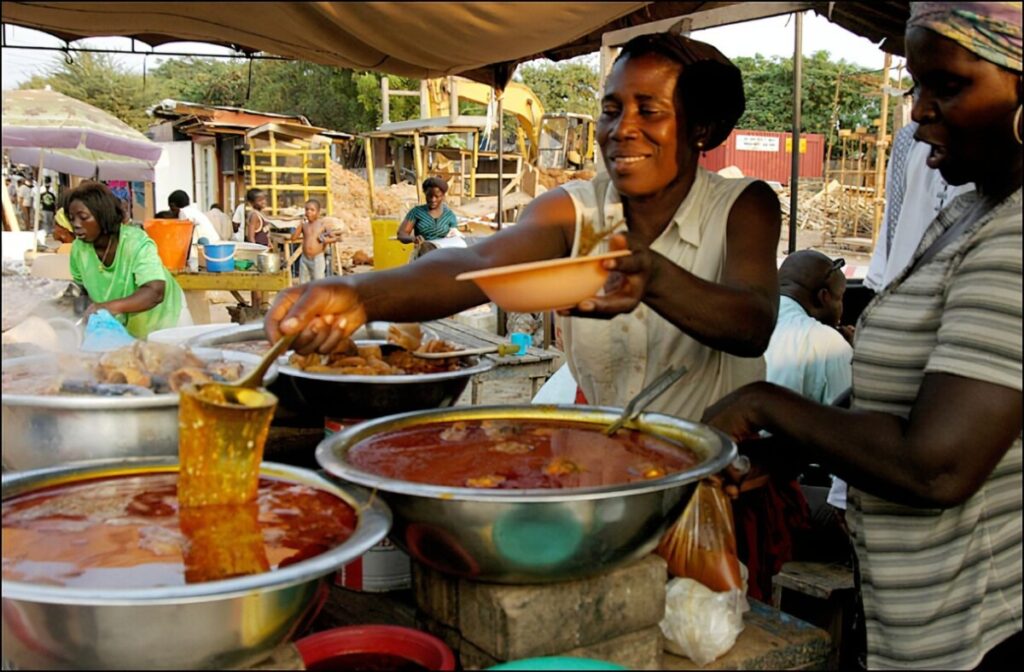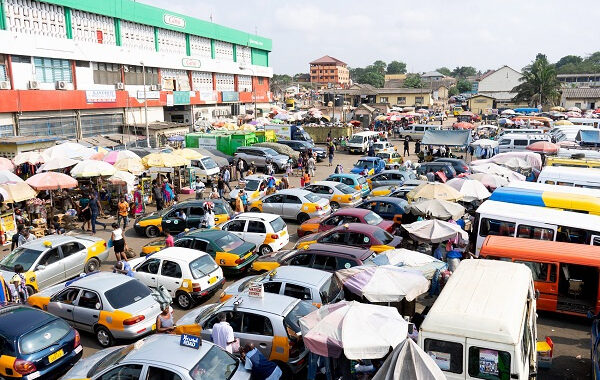Roadside Food or Roadside Danger? A Crisis That Needs to be Talked About

A fairly hygienic Ghanaian food vendor
You’re welcome to the newsgod. I’m Nelson Cofi. I invite you to take a few minutes of your time to reason with me on this very important issue. I don’t know if it’s too much to call it a matter of life and death, but it is a matter of life and death if you ask me.
I have always firmly believed in the idea that the media is a very powerful tool. Powerful enough to set the agenda, to trigger the thought-provoking conversations, to start the conversations, and that’s what I want us to do today. But before we get into this touchy subject that has been on my chest for a while now, I implore you to subscribe to the newsgod and follow us everywhere on social media so that we can have more of these discussions together.
Now, I want you to take a minute of your time to reflect on the condition of most of the roadside foods we’ve been buying. And no, I didn’t disappoint you. This is not clickbait. You did not waste your time by staying on to reason with me. This is a serious issue, and it is of urgent need that you treat it as such.
Now, let’s get back on track. Roadside food. How do you feel when you trek to your favourite waakye joint, or Daavi’s special beans, or g)b3 as we like to call it, or that early morning koko you just need to start the day, and the first thing that greets you is a swarm of houseflies? Or a pile of refuse? Or a heavily clogged gutter? Honestly, how does it make you feel? I bet it bothers you, well as it should. But then you go on and buy it anyway, right? Don’t worry, we listen, we don’t judge.
Don’t you consider that worrying? Well, I do, and I attach a serious condemnation to this. That’s why I had to break protocol to draw attention to this crisis. Yes, I call it a crisis because imagine going to buy a simple afternoon meal and in addition to the meal, you get a side package of bacteria, virus, fungi, or any of these food-borne diseases. Wouldn’t you agree with me to call that a crisis?
We are already struggling enough to survive this distressed economy, so adding the burden of treating avoidable diseases is simply intolerable. So, what can we do about this? If you ask me, we need to start calling out these roadside food vendors. Someone may say, “Well if you’re not pleased with the hygiene condition, just don’t buy from them.” Yes, we can decide not to buy, but we will also call them out because simply not buying does not solve the problem for everybody. Some of these food-borne diseases are communicable, and you can contract them even if you avoid roadside food. All it takes is for the person near you to catch it, and you’re also likely to contract it. So, calling out the food vendors is very much still on the table.
Dear roadside food vendors, I am not condemning you at all (well, that depends on how you define condemnation). But I think you lot are doing a bang-up job, saving us the time and even money because these days cooking is more expensive than eating out. So, on one hand, we appreciate you for that, but on the other hand, please you need to keep your food joints clean if you respect and care for your customers.
I cannot stress this enough: maintain good hygiene. Daavi, please sweep your surroundings before setting up for the day’s sales. Abotsi, please don’t dish my sausages with your bare hands. I don’t know where those hands have been, so if you’re not wearing gloves, then at least I need to see you wash your hands before serving my sausages or turkey, and please, waakye special, the gutter in front of you needs serious maintenance, so let’s do something about it.
Calling them out is merely a drop in the ocean and far from enough to abolish this appalling tradition. For our own good, why don’t we stay away from buying from these food vendors who couldn’t give a toss about the health of their customers? Maybe that will teach them to keep their surroundings clean.

 GRTCC suspends planned ‘August 8’ 20% public transport fare increase
GRTCC suspends planned ‘August 8’ 20% public transport fare increase  State funeral for helicopter crash victims set for August 15 at Black Star Square
State funeral for helicopter crash victims set for August 15 at Black Star Square  Black Queens rank 67th in FIFA ranking despite WAFCON performance
Black Queens rank 67th in FIFA ranking despite WAFCON performance